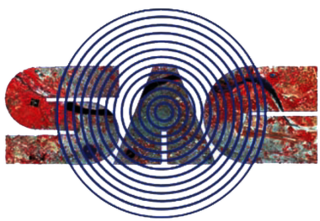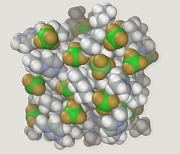
Computing is any goal-oriented activity requiring, benefiting from, or creating computing machinery. It includes the study and experimentation of algorithmic processes and development of both hardware and software. It has scientific, engineering, mathematical, technological and social aspects. Major computing disciplines include computer engineering, computer science, cybersecurity, data science, information systems, information technology and software engineering.
Gecko is a browser engine developed by Mozilla. It is used in the Firefox browser, the Thunderbird email client, and many other projects.
Quantum Link was a U.S. and Canadian online service for the Commodore 64 and 128 personal computers that operated starting November 5, 1985. It was operated by Quantum Computer Services of Vienna, Virginia, which later became America Online.

eWorld was an online service operated by Apple Inc. between June 1994 and March 1996. The services included email, news, software installs and a bulletin board system. Users of eWorld were often referred to as "ePeople."
Gaussian is a general purpose computational chemistry software package initially released in 1970 by John Pople and his research group at Carnegie Mellon University as Gaussian 70. It has been continuously updated since then. The name originates from Pople's use of Gaussian orbitals to speed up molecular electronic structure calculations as opposed to using Slater-type orbitals, a choice made to improve performance on the limited computing capacities of then-current computer hardware for Hartree–Fock calculations. The current version of the program is Gaussian 16. Originally available through the Quantum Chemistry Program Exchange, it was later licensed out of Carnegie Mellon University, and since 1987 has been developed and licensed by Gaussian, Inc.
Quantum programming is the process of assembling sequences of instructions, called quantum programs, that are capable of running on a quantum computer. Quantum programming languages help express quantum algorithms using high-level constructs.

The Quantum Cloud is a contemporary sculpture, designed by Antony Gormley, located next to The O2 in London. The sculpture was commissioned for the site and was completed in 1999.
Da capo is a musical term. Da Capo may also refer to:

QGIS is a free and open-source cross-platform desktop geographic information system (GIS) application that supports viewing, editing, and analysis of geospatial data.
This is a list of computer programs that are predominantly used for molecular mechanics calculations.
Materials Studio is software for simulating and modeling materials. It is developed and distributed by BIOVIA, a firm specializing in research software for computational chemistry, bioinformatics, cheminformatics, molecular dynamics simulation, and quantum mechanics.

The Space Applications Centre (SAC) is an institution of research in Ahmedabad under the aegis of the Indian Space Research Organisation (ISRO). It is one of the major centres of ISRO that is engaged in the research, development and demonstration of applications of space technology in the field of telecommunications, remote sensing, meteorology and satellite navigation. This includes research and development of on-board systems, ground systems and end user equipment hardware and software. SAC has three campuses, two of which are located at Ahmedabad and one at Delhi.

Molecular modeling on GPU is the technique of using a graphics processing unit (GPU) for molecular simulations.

AQUA@home was a distributed computing project operated by D-Wave Systems and running on the Berkeley Open Infrastructure for Network Computing (BOINC) software platform. It closed down in August 2011. Its goal was to predict the performance of superconducting adiabatic quantum computers on a variety of problems arising in fields ranging from materials science to machine learning. It designed and analyzed quantum computing algorithms, using Quantum Monte Carlo techniques.
The Linear Tape File System (LTFS) is a file system that allows files stored on magnetic tape to be accessed in a similar fashion to those on disk or removable flash drives. It requires both a specific format of data on the tape media and software to provide a file system interface to the data.

Quantum ESPRESSO is a suite for first-principles electronic-structure calculations and materials modeling, distributed for free and as free software under the GNU General Public License. It is based on density-functional theory, plane wave basis sets, and pseudopotentials. ESPRESSO is an acronym for opEn-Source Package for Research in Electronic Structure, Simulation, and Optimization.
Dacapo Records is a Danish classical music and new music record label. It was founded in 1989 to promote the classical and new music of Denmark and represents itself as "the Danish National label". The board includes university and Danish Radio appointees. Dacapo also produces jazz and experimental music.
Cloud-based quantum computing is the invocation of quantum emulators, simulators or processors through the cloud. Increasingly, cloud services are being looked on as the method for providing access to quantum processing. Quantum computers achieve their massive computing power by initiating quantum physics into processing power and when users are allowed access to these quantum-powered computers through the internet it is known as quantum computing within the cloud.
Google AI is a division of Google dedicated to artificial intelligence. It was announced at Google I/O 2017 by CEO Sundar Pichai.







